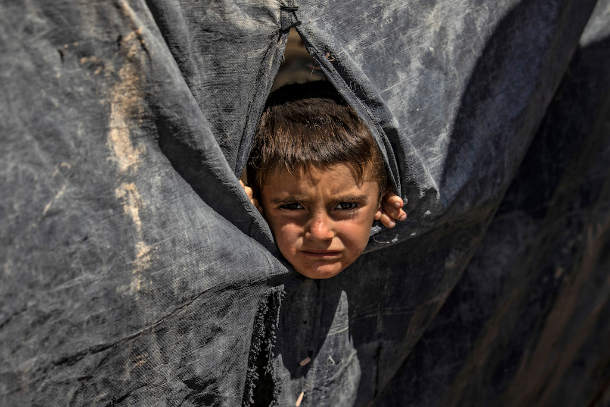It has been three years since the guns fell silent in Mosul, the erstwhile capital of the Islamic State of Iraq and al-Sham (ISIS). However, the Islamic terrorist group still cherishes the idea of reviving the caliphate, giving Iraq’s ancient Christian minority a bleak chance to reclaim their ancestral lands.
More than 10,000 Islamic State (IS) fighters are reported to be active in Iraq and Syria, according to UN counterterrorism chief Vladimir Voronkov.
The extremist group, also known as the Islamic State of Iraq and the Levant (ISIL), has regrouped and its activity has increased in conflict zones like Iraq and Syria, Voronkov said on Aug. 24.
IS fighters roam around in small cells between the two countries, Voronkov told the UN Security Council. Their attacks have significantly increased this year, he said.
The regrouping indicates a strategy change under new leader Amir Mohammed Said Abd al-Rahman al-Mawla. He replaced Abu Bakr al-Baghdadi, who was killed in a raid by US special forces in October last year.
Since June 2004, when the terror group claimed to have established the caliphate called Islamic State of Iraq and Syria, more than 20,000 Christians have fled the northern Iraqi city of Mosul alone. After the caliphate faded away in 2017, not more than 100 have returned.
Reine Hanna, director of the US-based Assyrian Policy Institute, a non-profit organization advocating the rights of Iraqi minorities including Assyrians and Yasidis, says there is little incentive for Christians to return because “people can’t work and earn a living among ruins.”
The vast majority of Iraqi Christians are indigenous Eastern Aramaic-speaking ethnic Assyrians.
Iraq has been home to Christians for some 2,000 years. Falling mostly outside the ancient Roman Empire, Iraqi Christians have their own unique forms of worship, theology and ancient liturgical rites that endure to this day.
Before the US-led invasion in 2003, Iraq housed 1.5 million Christians. By 2014, shortly before the rise of IS, more than 800,000 had fled to Europe and the US.
The caliphate’s establishment sent the few remaining Christians packing, escaping the brutal regime that asked them to pay a special tax for non-believers or leave or be killed. Nearly all chose to leave.
The territorial defeat of IS provided a chance for Christians to return. However, their homecoming has not gathered steam due to the remnants of Islamic terrorists, various militias subscribing to the Shia branch of Islam and an inefficient Iraqi government.
The government’s measures at reconciliation and reconstruction of the country have been mostly cosmetic and have failed to instill confidence among minority communities.
International aid programs, started after the US-led invasion, have not reached anywhere due to rampant corruption.
Prime Minister Mustafa Al-Kazemi urged Iraqi Christian immigrants to return home after he had a meeting on Aug. 9 with Cardinal Louis Raphael I. Sako, the head of the Chaldean Catholic Church and the Patriarch of Babylon.
“Iraq was a country for everyone, and Christians are the original children of the country,” the prime minister said.
After attending the meeting, Curial Bishop Basel Salim Yaldo said that to keep “our faith alive, we need to guarantee responses in terms of reconstruction of homes and employment” from the government.
But such guarantees seem a distant reality as experts point to continuing IS activities.
IS plans more attacks in the border area between Syria and Iraq, Russia’s UN ambassador Vassily Nebenzia told an Aug. 24 meeting of the world body. Russia aids Syria’s fight against IS.
“At the same time, the terrorists do not intend to give up plans to revive the caliphate in Iraq,” he added.
Besides being active in Iraq and Syria, the terror outfit’s well-oiled machinery is thriving in West Africa, where its total strength of 3,500 makes it one of the largest of the group’s remote provinces.
The terror network is also active in the border area of Burkina Faso, Mali and Niger.
In Europe, the IS terror network functions through individuals engaged in internet-driven, homegrown terrorist radicalization, reports show.
The international community seems to have forgotten the blood-soaked exodus of thousands of Christians. Their walk back to their homeland continues to be a distant dream as IS regroups in Iraq with plans to continue the violence.
By: Ben Joseph
Source:ucanews.com






